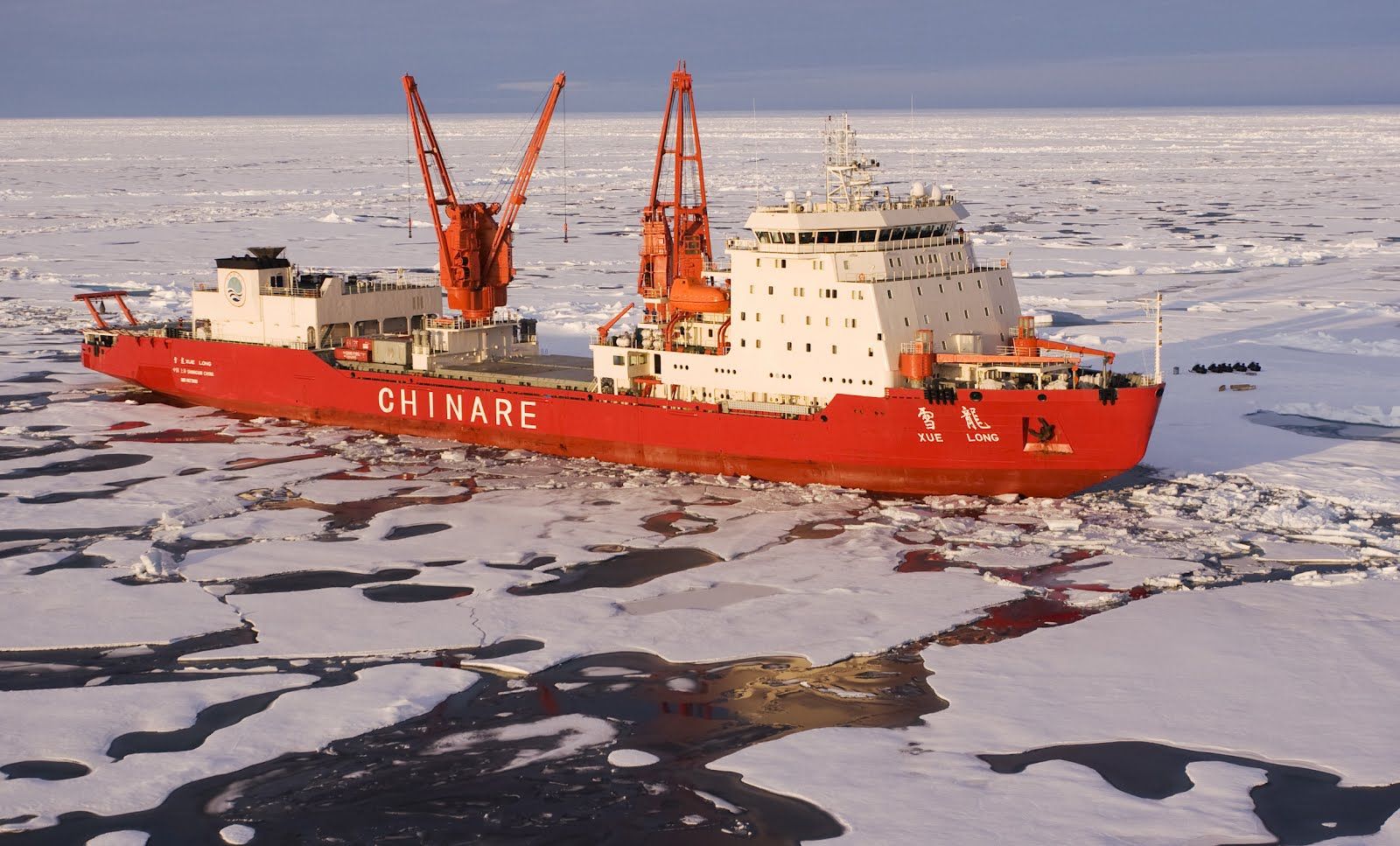
(PRIC)
On January 26, 2018, China’s State Council Information Office published a whitepaper entitled “China’s Arctic Policy”. For the first time, China gives a comprehensive explanation of its basic stand, and the policies and principles governing its participation in Arctic affairs. With the Arctic gaining greater political and economic significance, a whitepaper detailing China’s Arctic positions could not have come at a better time.
First, the whitepaper defines the “Chinese role”. On the one hand, China is a key stakeholder in Arctic affairs as changes and developments in the Arctic may have a direct impact on China’s eco-system and economic interests. China is therefore committed to becoming an active participant in, builder for and contributor to Arctic development. On the other hand, China is not an Arctic state geographically and, while operating in the Arctic, it needs to respect the legitimate interests of Arctic states and other non-Arctic states, as well as the culture and traditions of the indigenous peoples. Just as Vice Foreign Minister Kong Xuanyou said at the press conference, China will not intervene with what falls entirely within inter-Arctic affairs. Rather, it will play a constructive role in Arctic-related transregional and global issues as a “near-Arctic state”. In this respect, China will not overstep its boundaries.
Second, the whitepaper sets the “Chinese goal”. China’s Arctic policy goal is to promote the community of shared future for mankind and realize sustainable development in the region. China wishes to see a new type of international relations featuring mutual respect, justice, equity, and win-win cooperation in the Arctic region. It is concerned about balancing resource exploitation with environment protection, shoring up weak mechanisms to meet growing needs in Arctic governance, and harmonizing leadership by Arctic states with the involvement of non-Arctic countries. By spelling out its Arctic policy goals, China helps countries both inside and outside the region understand more clearly where it stands and what it will do, thus dispelling doubts and increasing trust and goodwill for China in the region.
China’s earliest involvement in Arctic affairs can be traced back to its 1925 accession to the Spitsbergen Treaty. It become more involved during the 1990s. In recent years, China began to take part in Arctic affairs in an extensive and multi-layered manner. As the whitepaper indicates, China’s Arctic activities in the future will focus on the five areas of scientific research, environment protection, resource utilization, governance-related cooperation, and maintenance of Arctic peace and stability. It means China’s Arctic involvement will have its priorities as well as limitations. Due to the fragile Arctic environment and the degree of its involvement in the Arctic affairs, China will prioritize research, protection and cooperation for the time being. These focuses will direct the activities of Chinese research institutions and enterprises in the Arctic.
There is one point that stands out in the whitepaper - the development of a “Polar Silk Road”. This can be seen as an extension of China’s “Belt and Road Initiative” in the Arctic region, which may help address the shortage of ports, logistics, telecommunications, navigation and other infrastructure facilities along the Arctic shipping routes. It also represents a practical proposal for building greater common interests and achieving win-win results through cooperation.
The whitepaper also offers the “Chinese positions for governance”. In its view, in the absence of a single, comprehensive international treaty for all Arctic affairs, Arctic governance is currently regulated by the Charter of the United Nations, the United Nations Convention on the Law of the Sea, the Spitsbergen Treaty and other international treaties, and general international law. The whitepaper states that China will uphold the current Arctic governance system with the UN Charter and UNCLOS as its core. China will abide by them whilst participating in Arctic governance through various mechanisms, maintaining its freedom and rights to scientific research, navigation, overflight, fishing, laying of submarine cables and pipelines, and resource exploration. China’s rights to Arctic involvement are not bestowed by certain countries or international organizations. They flow naturally and inevitably from international law and treaties. At the same time, China will properly regulate its nationals operating in the Arctic region and act in full compliance with the law.
The press has given a lot of attention to this whitepaper. The mainstream opinion applauded China’s sincerity and inclusiveness for Arctic-related cooperation. Yet some expressed reservations for China’s Arctic involvement, citing concerns about China’s likely military deployment and its potential to control the region slowly through the “Polar Silk Road” scheme. The negative reception may indicate a lack of understanding of China’s policies and activities in the Arctic, or a result of deep-rooted “China threat” mentality. China’s whitepaper is no more than an effort to air its views to build consensus and remove misunderstandings. As the whitepaper points out, China will participate in Arctic affairs in keeping with such principles as respect, cooperation, win-win results and sustainability, and pay due regard to the interests of other countries and the interests of the international community as a whole while pursuing its own interests. At the practical level, China has a need to expand its Arctic activities. It has the right to participate in Arctic affairs and a capacity to speed up Arctic development. The international community, meanwhile, also needs Chinese wisdom and resources to cope with new threats and challenges emerging from a changing Arctic. China’s involvement in Arctic affairs can bring the region new impetus and new opportunities for development.



